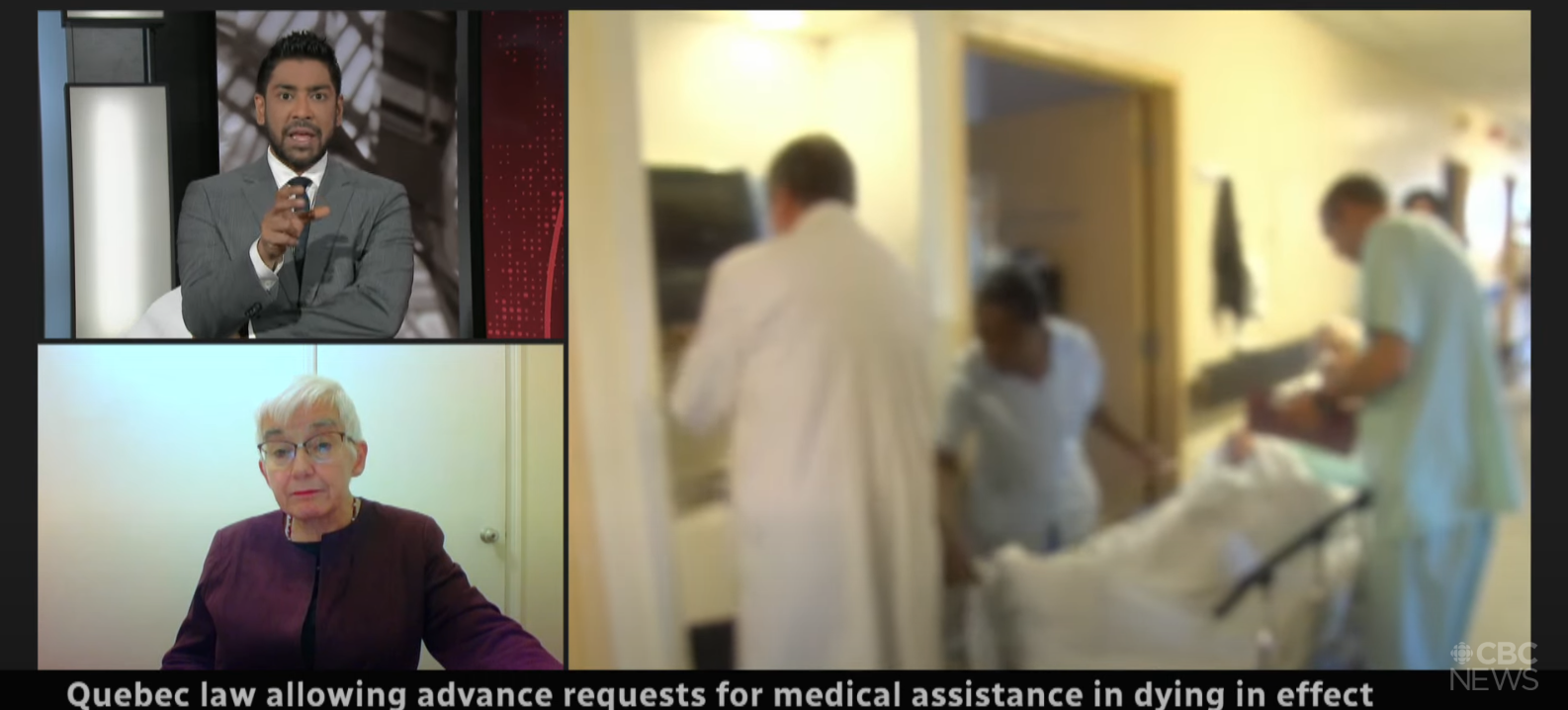“Things are what they are”, runs traditional wisdom. True or false. Right or wrong.
But that was yesterday. Now, apparently, things are whatever you would like them to be:
- Jean Truchon and Nicole Gladu, for instance, believe that they should have access to euthanasia because of their disabilities, even though they are in no way near the “end of life” as stipulated by the law.
- The euthanasia lobby agreed enthusiastically with this claim, and provided the financial and legal resources required to mount a challenge to existing law.
- The Honorable Christine Baudouin, justice of the Superior Court of Quebec, also agreed that the disabled condition of M. Truchon and Mme. Gladu justifies having them euthanized. She handed down her judgment to that effect on September 11, 2019, effectively invalidating current law, unless an appeal were made to the Supreme Court of Canada within 30 days. The deadline has come and gone with no action from the Attorney General of Canada or of Quebec.
- Prime Minister Trudeau is of the same mind, as are the NDP and the Bloc Québécois, according to statements made during the recent campaign.
- Finally, the media, not all, but in the large majority, also support the claims of Mr. Truchon and Ms. Gladu, and loudly proclaim the righteousness of euthanizing people who are disabled and not dying.
We have, then, what appears to be an iron-clad consensus in support of euthanizing disabled and ill individuals whether they are in danger of dying or not. And clearly, the common man (or woman) in our society might be forgiven for accepting and supporting that idea, when judges, politicians, intellectual opinion – not to mention their favorite TV personalities – are all reading from the same script.
The one small problem with this state of shared understanding is that the huge majority of ill and disabled people, the intended beneficiaries of this “right to die”, do not agree at all. They do not support this most recent judgment. They did not support legal euthanasia to begin with, they do not wish to die – however much the social consensus might imagine that they would (or should).
The strangest and most deplorable aspect of euthanasia in Canada is that public opinion is united in declaring that we must provide merciful death for suffering patients, but that the intended clientele – those people who are actually disabled or chronically ill and who are now earnestly, even aggressively, offered this frightful choice – continue to speak with a virtually unanimous voice in declaring that what they need is not greater access to euthanasia, but to be protected from it; and to be protected, above all, from the threatening prejudicial assumptions that lie at its base: that the lives of ill and disabled people are not worth living.
More than ever, then, as doctors, it is our principal duty to champion our patients in their own intuitive and entirely normal will to survive, regardless of what surrounding pressures may be pushing them to believe, that they should, in fact, wish to die.
Euthanasia was decriminalized inspite of cogent, rational, and widely held fears that it would threaten the social and physical security of our patients (those who are vulnerable, disabled, ill and dependent). This danger was clearly recognized, and it was even addressed in law (however ineffectually) by restricting the practice to only those who were considered to be imminently dying.
The Quebec Superior Court has now removed that safeguard, and our federal and provincial governments have failed to appeal the judgment. The essential protection (at end of life only) which enabled legalization of euthanasia in the first place has been cavalierly swept aside, and the unanimous fears of the disabled community –fully justified – have been ignored.
Unsurprisingly, there has been a unanimous, vigorous, and almost desperate reaction from that quarter. Over 60 different organizations which have evolved organically over the years at national and regional levels, most of which have as sole purpose the promotion of disabled inclusion, rights and interests, have joined together to condemn the Truchon-Gladu judgment and to petition the Attorney General of Canada to appeal the ruling. Over 60 different organizations speaking against any broadening of euthanasia criteria, as opposed to two (2) disabled individuals (spokespersons of the euthanasia lobby, and lionized by the media).
This outcry was largely ignored by politicians and the media. To most ordinary people the situation seems to have been happily resolved, it having been decided by a higher authority that it is good for disabled individuals to be able to ask for and receive accelerated death as treatment for their ills.
No longer, therefore, will the random stranger speak of his admiration for the disabled person’s courage in living. Henceforth, as we saw in the French-language leaders’ debate, he will gaze earnestly into their eyes and assure them of his deep respect for their (assumed) desire to die. And thus are their worst fears realized.
We, doctors opposed to euthanasia, are among the few who remain as effective allies for these people, our patients, to whom we owe our primary duty. We look beyond the simplicity of “legal = right”, and “right = obligation”. We have grasped that the consensus in favor of euthanasia is a consensus of the able-bodied. We understand through experience that there is nothing normal or typical about wanting to die. We remain to champion the normal and typical survival wishes of our own patients: through our behaviour in our clinical work; through our communication with patients; and through our publicly written and spoken words.
Make euthanasia unimaginable.
Sincerely,
Catherine Ferrier
President

